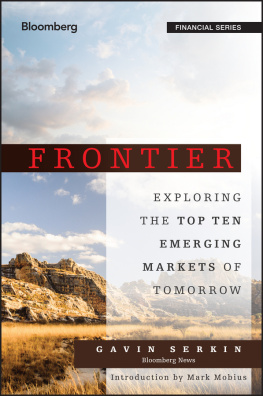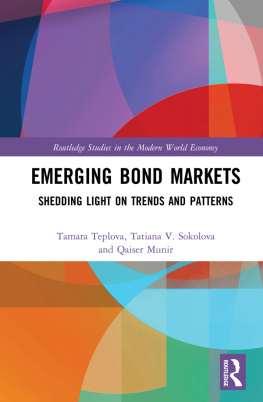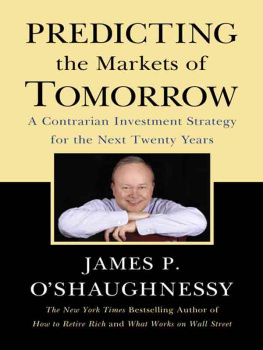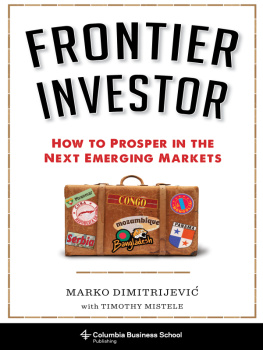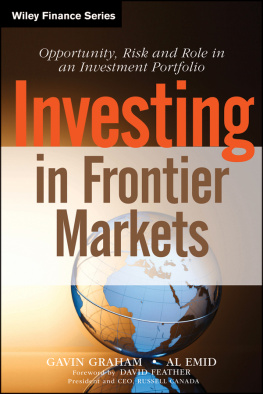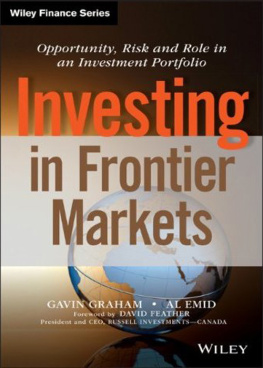
This edition first published 2015
2015 John Wiley & Sons Ltd
Registered office
John Wiley & Sons Ltd, The Atrium, Southern Gate, Chichester, West Sussex, PO19 8SQ, United Kingdom
For details of our global editorial offices, for customer services and for information about how to apply for permission to reuse the copyright material in this book please see our website at www.wiley.com.
The right of the author to be identified as the author of this work has been asserted in accordance with the Copyright, Designs and Patents Act 1988.
All rights reserved. No part of this publication may be reproduced, stored in a retrieval system, or transmitted, in any form or by any means, electronic, mechanical, photocopying, recording or otherwise, except as permitted by the UK Copyright, Designs and Patents Act 1988, without the prior permission of the publisher.
Wiley publishes in a variety of print and electronic formats and by print-on-demand. Some material included with standard print versions of this book may not be included in e-books or in print-on-demand.
If this book refers to media such as a CD or DVD that is not included in the version you purchased, you may download this material at http://booksupport.wiley.com. For more information about Wiley products, visit www.wiley.com.
Designations used by companies to distinguish their products are often claimed as trademarks. All brand names and product names used in this book are trade names, service marks, trademarks or registered trademarks of their respective owners. The publisher is not associated with any product or vendor mentioned in this book.
Limit of Liability/Disclaimer of Warranty: While the publisher and author have used their best efforts in preparing this book, they make no representations or warranties with respect to the accuracy or completeness of the contents of this book and specifically disclaim any implied warranties of merchantability or fitness for a particular purpose. It is sold on the understanding that the publisher is not engaged in rendering professional services and neither the publisher nor the author shall be liable for damages arising herefrom. If professional advice or other expert assistance is required, the services of a competent professional should be sought.
Library of Congress Cataloging-in-Publication Data
Serkin, Gavin, 1971
Frontier : exploring the top ten emerging markets of tomorrow / Gavin Serkin.
pages cm
Includes bibliographical references and index.
ISBN 978-1-118-82373-6 (cloth)
1. Investments, ForeignDeveloping countries. 2. InvestmentsDeveloping countries. I. Title.
HG5993.S467 2015
332.67'3dc23
2014041647
Cover Design: Wiley
Cover Image: Sky Shutterstock.com/Pakhnyushchy;
Landscape Shutterstock.com/Anton_Ivanov
For my parents, Tricia & Stanley, and the memory of epic caravan journeys
&
My late father-in-law, Victor, who summed up these hundred thousand words in three: What, another holiday?
About the Author
Gavin Serkin has been writing about developing economies for the best part of two decades as the Editor of Portfolio International magazine and more recently as the head of the emerging markets international desk at Bloomberg News in London.
His work keeps him in touch with some of the biggest investors and world leaders, chairing conference panels on issues from African development and Chinese growth to Islamic finance.
Gavin led Bloomberg's coverage of the credit and derivatives markets from 2004 to 2008, winning the Society of American Business Editors & Writers' Best in Business Award and the Society of Professional Journalists' Deadline Club Award. His team's exposure of problems brewing in the littleunderstood world of collateralized debt obligations provided warnings of the subprime mortgages disaster about to unfold.
Gavin has a joint honors degree in Economics & International Relations. He lives by the sea in Whitstable, England, with his wife and son.
Disclaimer
Financial markets and conditions can change rapidly, therefore the views in this book shouldn't be taken as current statements of fact nor should reliance be placed on them when making investment decisions. They shouldn't be considered as advice or a recommendation to buy, sell or hold a particular investment. Opinions expressed by named individuals don't necessarily reflect the views of the companies that employ them. Some of the individuals or their employers may have dealt in the investments discussed. As such, the book contains information and opinion on investments that doesn't constitute independent research, and therefore isn't subject to the protections afforded to independent research.
Prologue
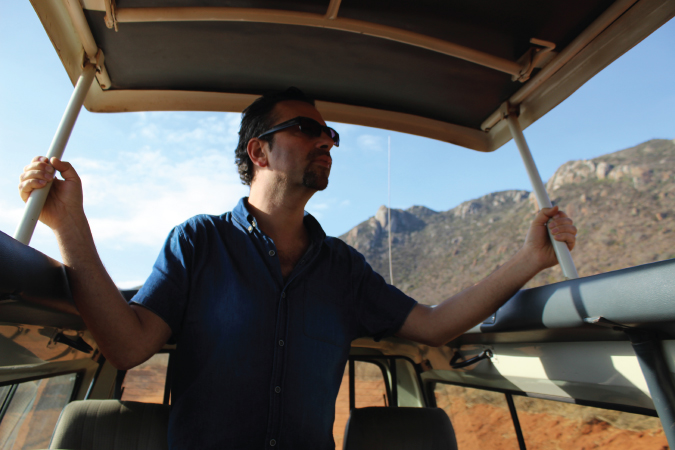
Photography by Gabriel Rotich, A24 Media
One's destination is never a place but a new way of looking at things.
Henry Miller
Where's the best place in the world to put your money?
So far this decade, it's a country deemed so doomed it's listed with the ten most fragile states; a place where modern-day slavery, violence and the breakdown of law and order rank it among the three worst hellholes on the planet.
Between deadly attacks by the Taliban, strikes by US drones and the secret missions to monitor Osama bin Laden, shares in Karachi soared, extending 1000% gains this century.
It's not just Pakistan.
In the face of terror and global economic shocks, some of the biggest investment rewards are turning up in the most vulnerable of places. Assets in impoverished, radicalized or seemingly impenetrable corners of the world are often wildly discounted. Even a glimmer of hope for political stability or improvement in the economy can spark a major rally ().
Plucky seven
| Best performing primary equity indexes this decade |
| Index | Return |
| Karachi 100 index | 176% |
| Dubai Financial Market | 149% |
| Philippine SE Index | 145% |
| Stock Exchange of Thailand | 120% |
| OMX Copenhagen 20 | 95% |
| Qatar Exchange Index | 92% |
| Nairobi All Share | 92% |
| Best performing primary equity indexes this millennium |
| Index | Return |
| Mongolia Stock Exchange Top 20 Index | 3207% |
| Montenegro Stock Exchange | 1237% |
| Colombia Colcap Index | 1113% |
| Karachi 100 Index | 1028% |
| Qatar Exchange Index | 894% |
| Peru Lima General Index | 890% |
| Kazakhstan KASE Stock Exchange | 689% |
Note: Data compiled by Bloomberg as of December 2014. Table excludes Venezuela Stock Market Index and Lusaka Stock Exchange All Share Index because of restrictions on repatriating foreign-currency returns or data constraints. Base currency: US dollar. (Function: WEIS GO).
At one time such countries were looked upon as exotic by a few -investors while mostly dismissed as basket cases. Now they form a -growing -investment universe known as the frontier markets a gateway before the more -mainstream emerging and developed markets that have trillions of -dollars of investment funds competing to buy assets. While some rank as frontier because they have restrictive investment laws or tiny markets, most are poor or riven by conflict.
Next page
